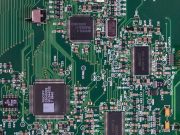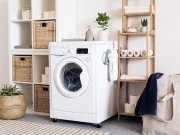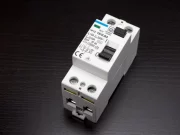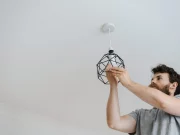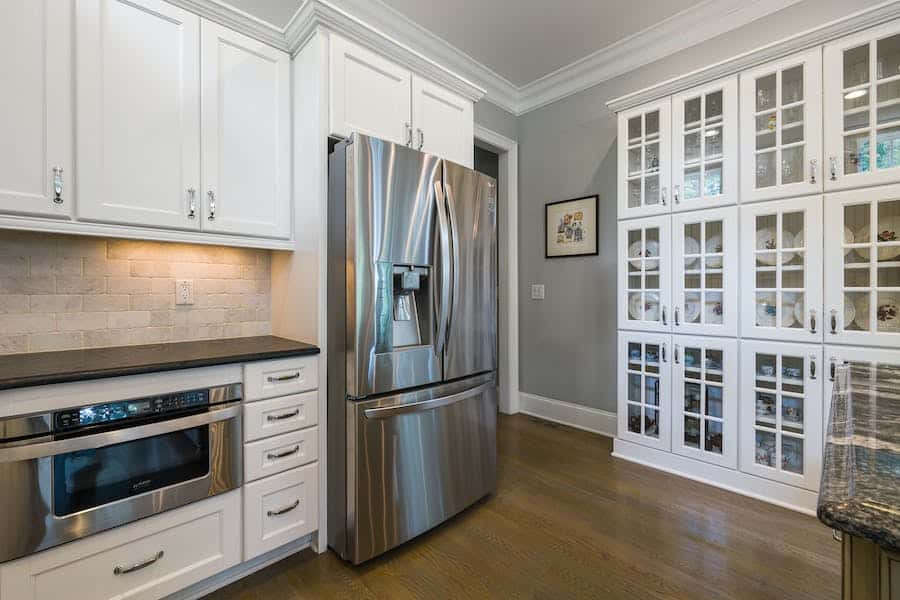In the heart of every kitchen, the refrigerator stands as a silent sentinel, faithfully preserving our food and keeping it fresh for our daily nourishment. It’s a trusted appliance we rely on without question, but have you ever pondered the intricacies of its electrical needs? The burning question on many minds is this: Does a refrigerator need a dedicated circuit? In this article, we embark on a journey to unravel the mysteries of refrigerator electrical requirements, dedicated circuits, and the crucial considerations that ensure your kitchen companion functions optimally while keeping your home safe. So, fasten your seatbelts as we delve into the electrifying world of refrigerators and circuits!
Does A Refrigerator Need A Dedicated Circuit?
Yes, in many cases, a refrigerator does need a dedicated circuit. A dedicated circuit ensures the refrigerator has a stable power supply, reduces the risk of overloads, and enhances safety. However, the necessity may vary based on factors like the refrigerator’s electrical demand and local electrical codes. It’s advisable to check your refrigerator’s requirements and consult local regulations to determine if a dedicated circuit is needed in your specific situation.
What Is A Dedicated Circuit?
Now that we have a grasp of how electrical circuits work let’s define what a dedicated circuit is. A dedicated circuit is a circuit that serves a single appliance or electrical device exclusively. This means that no other appliances or outlets are connected to it. Dedicated circuits are typically used for appliances that have high electrical demands or that require a stable and uninterrupted power supply.
Refrigerator Electrical Requirements
Refrigerators are among the common kitchen appliances that people wonder about when it comes to dedicated circuits. To determine whether a refrigerator needs one, we need to consider its electrical requirements.
Most standard residential refrigerators operate on a 120-volt circuit and draw around 6-8 amps of current. This means they typically consume around 720-960 watts of power. However, larger or more feature-rich refrigerators may require slightly more power. For instance, side-by-side refrigerators or those with additional features like digital displays, water dispensers, or smart connectivity may have higher power requirements.
Some refrigerators come equipped with built-in ice makers. These ice makers require additional electrical power to operate the ice-making process, which can increase the refrigerator’s overall electrical demand. It’s essential to check the manufacturer’s specifications for your specific refrigerator model to determine its precise power requirements.
Large appliances, such as refrigerators, must have their own circuit, as required by local electrical standards. This lowers the risk of overload, especially in older or smaller homes.
For safe and effective refrigerator operation, refer to the manufacturer’s instructions or a competent electrician. In addition to ensuring correct installation and encouraging safety, they may assess whether a dedicated circuit is required and minimize electrical problems in homes.
The Case For A Dedicated Circuit
When it comes to your refrigerator’s electrical needs, dedicating a circuit exclusively to this essential kitchen appliance offers several compelling advantages. Let’s explore the reasons why a dedicated circuit makes sense:
1. Preventing Overloads
Refrigerators, while not the most power-hungry appliances in your kitchen, can still draw a significant amount of electrical current. Plugging them into a circuit shared with other high-demand appliances can lead to overloads. When an overload occurs, the circuit breaker may trip or the fuse may blow, causing a disruption in power supply not only to your refrigerator but also to other devices on the same circuit. With a dedicated circuit, this risk is minimized, ensuring that your refrigerator runs smoothly without interruptions.
2. Enhanced Safety
Safety should always be a top priority when it comes to electrical systems. Using a dedicated circuit for your refrigerator reduces the chances of electrical faults, short circuits, or even fires that can result from overloaded circuits. This added layer of safety not only protects your home and appliances but also provides peace of mind.
3. Consistent Performance
Refrigerators require a stable and consistent power supply to maintain proper temperature levels. Fluctuations in power caused by sharing a circuit with other appliances can lead to temperature variations inside the fridge, potentially compromising the freshness and safety of your food. By dedicating a circuit, you ensure that your refrigerator operates consistently, providing optimal performance and preserving your groceries effectively.
4. Compliance With Electrical Codes
In many regions, electrical codes or regulations mandate dedicated circuits for specific appliances, including refrigerators. Compliance with these codes is not only a legal requirement but also a measure to ensure the safety and reliability of your electrical system. Checking with your local building codes is essential to ensure you meet all the necessary requirements.
Dedicated circuits for your refrigerator are essential for safety, performance, and compliance with local electrical codes, ensuring the overall safety and functionality of your home’s electrical system.
When Might You Not Need A Dedicated Circuit?
When considering whether you need a dedicated circuit for your refrigerator, it’s important to take into account various factors and scenarios that might influence your decision. Here are some additional points to consider:
Low Electrical Demand: If your refrigerator has a relatively low electrical demand and you don’t have other high-powered appliances on the same circuit, you may not require a dedicated circuit. Some smaller or more energy-efficient refrigerators may draw less current and operate efficiently without the need for a dedicated circuit.
Modern Electrical Systems: In newer homes with modern electrical systems and ample circuit capacity, you may be less likely to need a dedicated circuit for your refrigerator. Modern electrical systems are often designed to accommodate the power needs of various appliances without overloading circuits.
Local Regulations: Local electrical codes and regulations can vary significantly from one region to another. In some areas, local electrical codes may not specifically require dedicated circuits for residential refrigerators. It’s essential to consult with your local building department or an electrician to determine whether your location has specific requirements regarding dedicated circuits for refrigerators.
Circuit Load Analysis: Perform a thorough analysis of the electrical load on the circuit where your refrigerator is currently connected. If the circuit is only powering the refrigerator and doesn’t approach its maximum capacity, it may be adequate without the need for a dedicated circuit.
Future Upgrades: Consider any potential future upgrades or changes to your kitchen appliances. If you plan to add more high-power devices or appliances to your kitchen, it may be wise to install a dedicated circuit for your refrigerator preemptively to prevent potential overloads down the line.
How To Determine If Your Refrigerator Has A Dedicated Circuit
Determining whether your refrigerator has a dedicated circuit is essential for understanding its electrical setup. Here’s a step-by-step guide to help you determine if your refrigerator is connected to a dedicated circuit:
- Check The Circuit Breaker Or Fuse Box: Start by locating your home’s circuit breaker panel or fuse box. This is usually found in a utility room, basement, or garage. Open the panel cover and look for labeled circuits.
- Identify The Refrigerator Circuit: Examine the labels on the circuit breakers or fuses to find the one corresponding to your refrigerator. If it’s labeled as “refrigerator” or “fridge” and has no other appliances or outlets listed alongside it, there’s a good chance it’s a dedicated circuit. However, it’s essential to verify this.
- Shut Off The Circuit: Once you’ve identified the potential refrigerator circuit, shut it off by switching off the circuit breaker or removing the fuse. This step is crucial for safety, ensuring that there is no power flowing to the circuit while you work.
- Test For Power: To confirm whether the circuit is dedicated to your refrigerator, plug a small electrical device, such as a lamp or phone charger, into any outlets in your kitchen. Ensure that the device is functioning correctly. This step helps you confirm which outlets are part of the circuit in question.
- Inspect The Refrigerator Outlet: Examine the outlet to which your refrigerator is connected. If it’s the only outlet on the circuit, it provides further evidence that it’s dedicated to your refrigerator.
- Consult The Owner’s Manual: Refer to your refrigerator’s owner’s manual or documentation. Sometimes, manufacturers provide information about the recommended electrical setup, including whether a dedicated circuit is advised.
- Seek Professional Assistance: If you’re still uncertain about whether your refrigerator has a dedicated circuit, it’s best to consult a licensed electrician. They can inspect your electrical system, trace the wiring, and definitively determine whether your refrigerator is on a dedicated circuit.
- Label The Circuit: If it turns out that your refrigerator is on a dedicated circuit, consider labeling the circuit breaker or fuse to make it clear that it should not be used for other appliances or outlets. This helps prevent accidental overloads.
Remember that safety is paramount when dealing with electrical systems. Always exercise caution, and if you have any doubts about your ability to identify or work with electrical circuits, consult a professional electrician. Determining whether your refrigerator has a dedicated circuit ensures that your appliance operates safely and efficiently, preserving your food and providing peace of mind.
Installing A Dedicated Circuit
If you’ve determined that your refrigerator needs a dedicated circuit or you want to take the precautionary step of installing one, here are the general steps involved:
- Turn Off Power: Before making any electrical changes, turn off the power to the circuit you’ll be working on. This can be done by switching off the circuit breaker or removing the fuse.
- Run New Wiring: Install a new electrical cable (typically 12-gauge or 14-gauge) from the circuit breaker box to the location of the refrigerator.
- Install A New Outlet: At the refrigerator location, install a new electrical outlet. This outlet should match the voltage and amperage requirements of your refrigerator.
- Connect To The Circuit Breaker: Connect the new wiring to a dedicated circuit breaker in your electrical panel. Make sure it’s properly sized and labeled.
- Test The Circuit: Once the wiring and outlet are installed, turn the power back on and test the new circuit to ensure it’s functioning correctly.
- Consult A Professional: If you’re not comfortable with electrical work or if it involves complex wiring, it’s best to hire a licensed electrician to perform the installation.
Conclusion
While not mandatory for all refrigerators, opting for a dedicated circuit is a wise choice that enhances safety and performance. This dedicated circuit prevents overloads, reducing the risk of electrical issues and ensuring a stable power supply. It maintains consistent temperature levels in the refrigerator, preserving food effectively. Compliance with local electrical codes is essential for safety and system reliability. In conclusion, investing in a dedicated circuit is a small yet crucial step in safeguarding your home, prolonging your refrigerator’s lifespan, and ensuring reliable performance for this indispensable kitchen appliance. The peace of mind and added protection it offers make it a worthwhile consideration for any homeowner.




